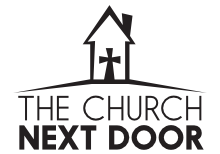Our Beliefs
Sola Scriptura
The Scriptures are verbally inspired by God and inerrant in the original writings. As God’s Word, they are the supreme authority in our lives. (2 Timothy 3:16-17, 2 Peter 1:20-21)
The Trinity
There is one eternal God, existing in three persons: Father, Son, and Holy Spirit. (Deuteronomy 6:4; Matthew 28:19)
The Son
Jesus Christ is fully God and fully man. He was begotten by the Holy Spirit and born of the Virgin Mary. He lived a sinless life, was crucified, died, was buried, and bodily resurrected as a substitute for sinners. He appeared to many and then ascended to heaven where he is Advocate and High Priest for those who trust in Him. Without the shedding of his blood, there could be no lasting forgiveness. (John 1:1-14; Luke 1:34-35; John 19:18,30,42; Luke 24:6; I Corinthians 15: 3-7; Acts 1:9; I John 2:1; Hebrews 7:24-27; 10:11-14)
The Holy Spirit
The Holy Spirit convicts the world of sin and gives the life of Christ to those who trust in Jesus. He also indwells them, baptizes (includes) them in the body of Christ, gives them spiritual gifts, seals and empowers them. (John 7:37-39; 15:8; Titus 3:5; I Corinthians 12:6-7, 13; Ephesians 1:13-14; 5:18)
Creation
The creation of the world and its inhabitants (including man) was a deliberate act of God.
Man’s Relationship with the Father
All people are created in the image of God (not from previous forms of life), one human race descended from Adam and Eve, and are designed for relationship with Him. But all are born with a sinful nature, separated from God by sin, spiritually dead, and in need of salvation. (Genesis 1:26; Romans 3:23; 5:12)
Justification by Grace
Eternal life and God’s righteousness are freely given by grace to those who are justified through faith in Jesus’ death and resurrection. (John 3:16; Romans 5:1-11; Ephesians 2:8-9)
Church Life
The local church is a group of believers in Jesus Christ – the called out ones (not a building). They should be committed to the Apostles’ teachings (God’s Word), fellowship, breaking of bread, and prayer. Together, they should practice communion with God, community with people, and commission to the world. (Matthew 22:36-40; Acts 2:42-47; Acts 20:28; I Corinthians 11:23-26; 12:13)
Baptism and Communion
Jesus left two visible symbols (water baptism by immersion and communion) for them to remember his death, resurrection, and the new life they bring to the believer. (Matthew 28:18-20)
Church Government
The local church should be led by a team of qualified elders and served by a team of qualified deacons. Every believer is a minister. There is one universal church body consisting of all who receive the good news of Jesus Christ. Jesus is the Builder and Head of both the local and universal church which were bought with his blood. (Ephesians 4:11-12; 5:23; I Timothy 3:1-13; Titus 1:5-9)
Eschatology
Christ’s return is imminent. All humans will be judged on the basis of their acceptance or rejection of God’s salvation through Jesus Christ. The saved will enjoy eternal blessing in the presence of God. The lost will suffer eternal, conscious punishment. All believers will stand before Christ who will evaluate their faithfulness and reward them accordingly. (I Corinthians 15:50-57; 2 Corinthians 5:9-10; I Thessalonians 4:13-18; Revelation 20:11-15)
